541 low relevance results shown for 'Red'. Prev |1|2|3|4|5|6|7|8|9|10|11|12|13|14|15|16|17|18|19|20|21|22 | Next | View 100 per page
Showing low relevance matches only. Return to normal search results
DNA - The transmission of heritable characteristics from one generation to the next involves DNA and genes ACSSU097 Year 6 Physical Sciences
Electrical Circuits - Electrical energy can be transferred and transformed in electrical circuits and can be generated from a range of sources ACSSU115 Year 7 Earth and Space Sciences
Earth Moon Sun - Predictable phenomena on Earth, including seasons and eclipses, are caused by the relative positions of the sun, Earth and the moon ACSSU229 Year 10 Physical Sciences
Forces and Motion - The motion of objects can be described and predicted using the laws of physics ACSBL029 Year 11 Biodiversity and the interconnectedness of life
Ecosystem dynamics - Models of ecosystem interactions (for example, food webs, successional models) can be used to predict the impact of change and are based on interpretation of and extrapolation from sample data (for example, data derived from ecosystem surveying techniques ACSBL085 Year 12 Heredity and continuity of life
DNA genes and the continuity of life - Frequencies of genotypes and phenotypes of offspring can be predicted using probability models, including Punnett squares, and by taking into consideration patterns of inheritance, including the effects of dominant, autosomal and sex-linked alleles and mu ACSBL090 Year 12 Heredity and continuity of life
Continuity of life on Earth - Natural selection occurs when selection pressures in the environment confer a selective advantage on a specific phenotype to enhance its survival and reproduction; this results in changes in allele frequency in the gene pool of a population ACSBL091 Year 12 Heredity and continuity of life
Continuity of life on Earth - In additional to environmental selection pressures, mutation, gene flow and genetic drift can contribute to changes in allele frequency in a population gene pool and results in microevolutionary change ACSCH056 Year 11 Molecular interactions and reactions
Intermolecular forces and gases - The shapes of molecules can be explained and predicted using three dimensional representations of electrons as charge clouds and using valence shell electron pair repulsion (VSEPR) theory ACSCH073 Year 11 Molecular interactions and reactions
Rates of chemical reactions - Catalysts, including enzymes and metal nanoparticles, affect the rate of certain reactions by providing an alternative reaction pathway with a reduced activation energy, hence increasing the proportion of collisions that lead to a chemical change ACSCH091 Year 12 Equilibrium acids and redox reactions
Chemical equilibrium systems - Over time, physical changes and reversible chemical reactions reach a state of dynamic equilibrium in a closed system, with the relative concentrations of products and reactants defining the position of equilibrium ACSCH096 Year 12 Equilibrium acids and redox reactions
Chemical equilibrium systems - Equilibrium position can be predicted qualitatively using equilibrium constants ACSCH097 Year 12 Equilibrium acids and redox reactions
Chemical equilibrium systems - Acids are substances that can act as proton (hydrogen ion) donors and can be classified as monoprotic or polyprotic depending on the number of protons donated by each molecule of the acid ACSCH098 Year 12 Equilibrium acids and redox reactions
Chemical equilibrium systems - The strength of acids is explained by the degree of ionisation at equilibrium in aqueous solution, which can be represented with chemical equations and equilibrium constants (Ka) ACSCH099 Year 12 Equilibrium acids and redox reactions
Chemical equilibrium systems - The relationship between acids and bases in equilibrium systems can be explained using the Brønsted Lowry model and represented using chemical equations that illustrate the transfer of hydrogen ions ACSCH100 Year 12 Equilibrium acids and redox reactions
Chemical equilibrium systems - The pH scale is a logarithmic scale and the pH of a solution can be calculated from the concentration of hydrogen ions; Kw can be used to calculate the concentration of hydrogen ions from the concentration of hydroxide ions in a solution ACSCH101 Year 12 Equilibrium acids and redox reactions
Chemical equilibrium systems - Acidbase indicators are weak acids or bases where the acidic form is of a different colour to the basic form ACSCH102 Year 12 Equilibrium acids and redox reactions
Chemical equilibrium systems - Volumetric analysis methods involving acidbase reactions rely on the identification of an equivalence point by measuring the associated change in pH, using chemical indicators or pH meters, to reveal an observable end point ACSCH103 Year 12 Equilibrium acids and redox reactions
Oxidation and reduction - A range of reactions, including displacement reactions of metals, combustion, corrosion, and electrochemical processes, can be modelled as redox reactions involving oxidation of one substance and reduction of another substance ACSCH104 Year 12 Equilibrium acids and redox reactions
Oxidation and reduction - Oxidation can be modelled as the loss of electrons from a chemical species, and reduction can be modelled as the gain of electrons by a chemical species; these processes can be represented using half equations ACSCH106 Year 12 Equilibrium acids and redox reactions
Oxidation and reduction - The relative strength of oxidising and reducing agents can be determined by comparing standard electrode potentials ACSCH107 Year 12 Equilibrium acids and redox reactions
Oxidation and reduction - Electrochemical cells, including galvanic and electrolytic cells, consist of oxidation and reduction half reactions connected via an external circuit that allows electrons to move from the anode (oxidation reaction) to the cathode (reduction reaction) ACSCH108 Year 12 Equilibrium acids and redox reactions
Oxidation and reduction - Galvanic cells, including fuel cells, generate an electrical potential difference from a spontaneous redox reaction; they can be represented as cell diagrams including anode and cathode halfequations ACSCH110 Year 12 Equilibrium acids and redox reactions
Oxidation and reduction - Cell potentials at standard conditions can be calculated from standard electrode potentials; these values can be used to compare cells constructed from different materials ACSCH130 Year 12 Structure synthesis and design
Properties and structure of organic materials - Data from analytical techniques, including mass spectrometry, xray crystallography and infrared spectroscopy, can be used to determine the structure of organic molecules, often using evidence from more than one technique ACSPH040 Year 11 Thermal nuclear and electrical physics
Electrical circuits - The energy available to charges moving in an electrical circuit is measured using electric potential difference, which is defined as the change in potential energy per unit charge between two defined points in the circuit ACSPH041 Year 11 Thermal nuclear and electrical physics
Electrical circuits - Energy is required to separate positive and negative charge carriers; charge separation produces an electrical potential difference that can be used to drive current in circuits ACSPH061 Year 11 Linear Motion and Waves
Linear motion and force - Representations, including graphs and vectors, and/or equations of motion, can be used qualitatively and quantitatively to describe and predict linear motion ACSPH064 Year 11 Linear Motion and Waves
Linear motion and force - Momentum is a property of moving objects; it is conserved in a closed system and may be transferred from one object to another when a force acts over a time interval ACSPH065 Year 11 Linear Motion and Waves
Linear motion and force - Energy is conserved in isolated systems and is transferred from one object to another when a force is applied over a distance; this causes work to be done and changes to kinetic and/or potential energy of objects ACSPH073 Year 11 Linear Motion and Waves
Waves - A mechanical system resonates when it is driven at one of its natural frequencies of oscillation; energy is transferred efficiently into systems under these conditions ACSPH076 Year 11 Linear Motion and Waves
Waves - A wave model explains a wide range of lightrelated phenomena including reflection, refraction, total internal reflection, dispersion, diffraction and interference; a transverse wave model is required to explain polarisation ACSPH021 Year 11 Thermal nuclear and electrical physics
Heating processes - Change of state involves internal energy changes to form or break bonds between atoms or molecules; latent heat is the energy required to be added to or removed from a system to change the state of the system
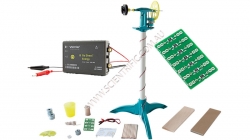
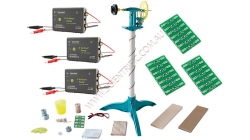


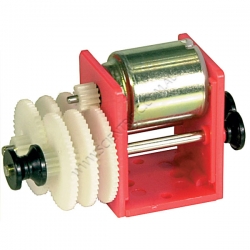
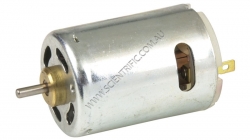
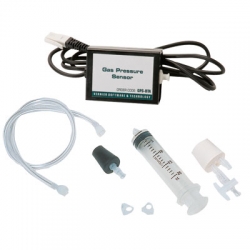
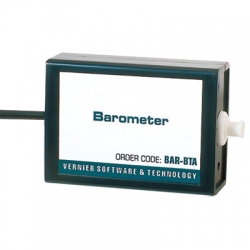
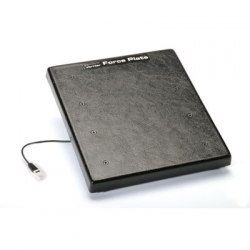
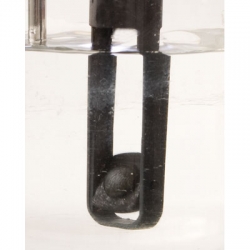
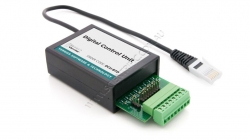
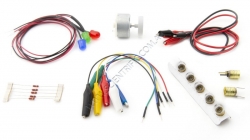

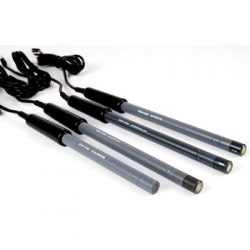

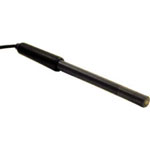
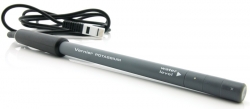
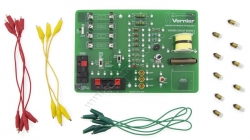


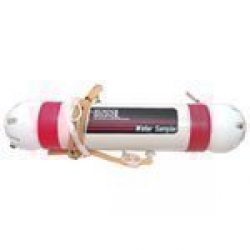


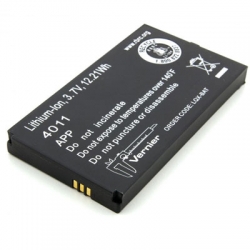

541 low relevance results shown for 'Red'. Prev |1|2|3|4|5|6|7|8|9|10|11|12|13|14|15|16|17|18|19|20|21|22 | Next | View 100 per page
Showing low relevance matches only. Return to normal search results
Curriculum resources related to 'Red'
ACSSU184 Year 10 Biological SciencesDNA - The transmission of heritable characteristics from one generation to the next involves DNA and genes ACSSU097 Year 6 Physical Sciences
Electrical Circuits - Electrical energy can be transferred and transformed in electrical circuits and can be generated from a range of sources ACSSU115 Year 7 Earth and Space Sciences
Earth Moon Sun - Predictable phenomena on Earth, including seasons and eclipses, are caused by the relative positions of the sun, Earth and the moon ACSSU229 Year 10 Physical Sciences
Forces and Motion - The motion of objects can be described and predicted using the laws of physics ACSBL029 Year 11 Biodiversity and the interconnectedness of life
Ecosystem dynamics - Models of ecosystem interactions (for example, food webs, successional models) can be used to predict the impact of change and are based on interpretation of and extrapolation from sample data (for example, data derived from ecosystem surveying techniques ACSBL085 Year 12 Heredity and continuity of life
DNA genes and the continuity of life - Frequencies of genotypes and phenotypes of offspring can be predicted using probability models, including Punnett squares, and by taking into consideration patterns of inheritance, including the effects of dominant, autosomal and sex-linked alleles and mu ACSBL090 Year 12 Heredity and continuity of life
Continuity of life on Earth - Natural selection occurs when selection pressures in the environment confer a selective advantage on a specific phenotype to enhance its survival and reproduction; this results in changes in allele frequency in the gene pool of a population ACSBL091 Year 12 Heredity and continuity of life
Continuity of life on Earth - In additional to environmental selection pressures, mutation, gene flow and genetic drift can contribute to changes in allele frequency in a population gene pool and results in microevolutionary change ACSCH056 Year 11 Molecular interactions and reactions
Intermolecular forces and gases - The shapes of molecules can be explained and predicted using three dimensional representations of electrons as charge clouds and using valence shell electron pair repulsion (VSEPR) theory ACSCH073 Year 11 Molecular interactions and reactions
Rates of chemical reactions - Catalysts, including enzymes and metal nanoparticles, affect the rate of certain reactions by providing an alternative reaction pathway with a reduced activation energy, hence increasing the proportion of collisions that lead to a chemical change ACSCH091 Year 12 Equilibrium acids and redox reactions
Chemical equilibrium systems - Over time, physical changes and reversible chemical reactions reach a state of dynamic equilibrium in a closed system, with the relative concentrations of products and reactants defining the position of equilibrium ACSCH096 Year 12 Equilibrium acids and redox reactions
Chemical equilibrium systems - Equilibrium position can be predicted qualitatively using equilibrium constants ACSCH097 Year 12 Equilibrium acids and redox reactions
Chemical equilibrium systems - Acids are substances that can act as proton (hydrogen ion) donors and can be classified as monoprotic or polyprotic depending on the number of protons donated by each molecule of the acid ACSCH098 Year 12 Equilibrium acids and redox reactions
Chemical equilibrium systems - The strength of acids is explained by the degree of ionisation at equilibrium in aqueous solution, which can be represented with chemical equations and equilibrium constants (Ka) ACSCH099 Year 12 Equilibrium acids and redox reactions
Chemical equilibrium systems - The relationship between acids and bases in equilibrium systems can be explained using the Brønsted Lowry model and represented using chemical equations that illustrate the transfer of hydrogen ions ACSCH100 Year 12 Equilibrium acids and redox reactions
Chemical equilibrium systems - The pH scale is a logarithmic scale and the pH of a solution can be calculated from the concentration of hydrogen ions; Kw can be used to calculate the concentration of hydrogen ions from the concentration of hydroxide ions in a solution ACSCH101 Year 12 Equilibrium acids and redox reactions
Chemical equilibrium systems - Acidbase indicators are weak acids or bases where the acidic form is of a different colour to the basic form ACSCH102 Year 12 Equilibrium acids and redox reactions
Chemical equilibrium systems - Volumetric analysis methods involving acidbase reactions rely on the identification of an equivalence point by measuring the associated change in pH, using chemical indicators or pH meters, to reveal an observable end point ACSCH103 Year 12 Equilibrium acids and redox reactions
Oxidation and reduction - A range of reactions, including displacement reactions of metals, combustion, corrosion, and electrochemical processes, can be modelled as redox reactions involving oxidation of one substance and reduction of another substance ACSCH104 Year 12 Equilibrium acids and redox reactions
Oxidation and reduction - Oxidation can be modelled as the loss of electrons from a chemical species, and reduction can be modelled as the gain of electrons by a chemical species; these processes can be represented using half equations ACSCH106 Year 12 Equilibrium acids and redox reactions
Oxidation and reduction - The relative strength of oxidising and reducing agents can be determined by comparing standard electrode potentials ACSCH107 Year 12 Equilibrium acids and redox reactions
Oxidation and reduction - Electrochemical cells, including galvanic and electrolytic cells, consist of oxidation and reduction half reactions connected via an external circuit that allows electrons to move from the anode (oxidation reaction) to the cathode (reduction reaction) ACSCH108 Year 12 Equilibrium acids and redox reactions
Oxidation and reduction - Galvanic cells, including fuel cells, generate an electrical potential difference from a spontaneous redox reaction; they can be represented as cell diagrams including anode and cathode halfequations ACSCH110 Year 12 Equilibrium acids and redox reactions
Oxidation and reduction - Cell potentials at standard conditions can be calculated from standard electrode potentials; these values can be used to compare cells constructed from different materials ACSCH130 Year 12 Structure synthesis and design
Properties and structure of organic materials - Data from analytical techniques, including mass spectrometry, xray crystallography and infrared spectroscopy, can be used to determine the structure of organic molecules, often using evidence from more than one technique ACSPH040 Year 11 Thermal nuclear and electrical physics
Electrical circuits - The energy available to charges moving in an electrical circuit is measured using electric potential difference, which is defined as the change in potential energy per unit charge between two defined points in the circuit ACSPH041 Year 11 Thermal nuclear and electrical physics
Electrical circuits - Energy is required to separate positive and negative charge carriers; charge separation produces an electrical potential difference that can be used to drive current in circuits ACSPH061 Year 11 Linear Motion and Waves
Linear motion and force - Representations, including graphs and vectors, and/or equations of motion, can be used qualitatively and quantitatively to describe and predict linear motion ACSPH064 Year 11 Linear Motion and Waves
Linear motion and force - Momentum is a property of moving objects; it is conserved in a closed system and may be transferred from one object to another when a force acts over a time interval ACSPH065 Year 11 Linear Motion and Waves
Linear motion and force - Energy is conserved in isolated systems and is transferred from one object to another when a force is applied over a distance; this causes work to be done and changes to kinetic and/or potential energy of objects ACSPH073 Year 11 Linear Motion and Waves
Waves - A mechanical system resonates when it is driven at one of its natural frequencies of oscillation; energy is transferred efficiently into systems under these conditions ACSPH076 Year 11 Linear Motion and Waves
Waves - A wave model explains a wide range of lightrelated phenomena including reflection, refraction, total internal reflection, dispersion, diffraction and interference; a transverse wave model is required to explain polarisation ACSPH021 Year 11 Thermal nuclear and electrical physics
Heating processes - Change of state involves internal energy changes to form or break bonds between atoms or molecules; latent heat is the energy required to be added to or removed from a system to change the state of the system
Products related to 'Red'

Vernier Go Direct Wind Energy Explorations Package - Single Pack
VERNIER GO DIRECT WIND ENERGY EXPLORATION PACKAGE
Examine renewable energy, wind power and engineering design with your Years 4-8 students. Collect, share and analyze sensor data with Vernier's free Graphical Analysis software. The GA app facilitates student understanding...
Order code: GDP-MS-WE

Vernier Go Direct Wind Energy Explorations Package - Classroom Pack
VERNIER GO DIRECT WIND ENERGY EXPLORATION CLASSROOM PACK
Examine renewable energy, wind power and engineering design with your Years 4-8 students. Collect, share and analyze sensor data with Vernier's free Graphical Analysis software. The GA app facilitates student unders...
Order code: GDP-MS-WEC

Vernier Go Direct Physics Standard Package
VERNIER GO DIRECT PHYSICS STANDARD PACKAGE
Designed for use by a group of 2-4 students, the Vernier Go Direct Physics Standard Package includes:
• GDX-MD Vernier Go Direct Motion Detector
•
Order code: GDP-PHY-DX

Vernier Go Direct Physics Starter Package
VERNIER GO DIRECT PHYSICS STARTER PACKAGE
Designed for use by a group of 2-4 students, the Vernier Go Direct Physics Starter Package includes:
• GDX-MD Vernier Go Direct Motion Detector
•
Order code: GDP-PHY-ST

Electric Motor and Gearbox Kit
This gearbox kit (shown assembled) is capable of reducing the supplied 3V motor's speed from 1200 to 3 rpm in six steps, of course other output speeds can be selected. Supplied with a gearing sheet and rubber grommets to retain gears. A practical way to learn about gearboxes.
Order code: SC5755

Electric Motor 13000 rpm 600mA
Larger heavy duty, medium speed, very high torque motor, hardened steel shaft, sintered bearings, quality brushes.
12V, 13,000 rpm at 655mA no load
At maximum efficiency:
Max. torque 267g-cm at 11193 rpm, 3.91 amps
Output 30.69 watts
Body 35.8mm dia. x 71mm, shaft 3.175 ...
Order code: SC5750

Vernier Gas Pressure Sensor
VERNIER GAS PRESSURE SENSOR
Vernier's Gas Pressure Sensor can be used to monitor pressure changes in a gas. The range is wide enough to perform Boyle’s law yet it is sensitive enough to conduct vapour-pressure or pressure-temperature experiments.
Biology teachers can us...
Order code: GPS-BTA

Vernier Barometer
VERNIER BAROMETER
The Barometer can be used to measure and monitor atmospheric pressure. It works well for conducting weather studies or for experiments that involve pressures close to normal atmospheric pressure. It can also be used as an altimeter if you have a portable...
Order code: BAR-BTA

Vernier Force Plate
VERNIER FORCE PLATE
About the size of a bathroom scale, the Vernier Force Plate has been designed for much higher forces than their DFS-BTA Dual-Range Force Sensor. The Force Plate can measure the forces developed during stepping, jumping and other human-scale actions.
...
Order code: FP-BTA

Vernier Microstirrer
VERNIER MICROSTIRRER
Vernier's Microstirrer takes the place of the stirring bar that is typically used with a laboratory magnetic stirrer. It easily attaches to the end of a pH sensor, conductivity probe, dissolved oxygen probe or ion-selective electrodes.
When the ma...
Order code: MSTIR

Vernier Digital Control Unit
VERNIER DIGITAL CONTROL UNIT
Including Vernier's DCU with your standard Vernier sensors provides a perfect way to implement hands-on STEM and engineering projects in the classroom. The engaging quality of DCU projects will appeal to students who may not necessarily be dra...
Order code: DCU-BTD

Vernier Digital Control Unit Power Output Kit
VERNIER DIGITAL CONTROL POWER OUTPUT KIT
Easily integrate the DCU-BTD Vernier Digital Control Unit into your engineering projects by using the Vernier Digital Control Unit Power Output Kit.
This kit allows students to connect various output devices to the DCU and includ...
Order code: DCU-POP

Vernier Electrode Amplifier
VERNIER ELECTRODE AMPLIFIER
The Electrode Amplifier is an ORP/mV/pH amplifier that accepts an electrode with a standard BNC connector. It amplifies a -450mV to +1100mV signal to a 0-5V range.
Use an Electrode Amplifier to collect data from almost any electrode that has...
Order code: EA-BTA

Vernier Ammonium Ion-Selective Electrode
VERNIER AMMONIUM ION-SELECTIVE ELECTRODE
Vernier's Ammonium Ion-Selective Electrode (ISE) can be used to measure the concentration of ammonium (NH4+) in aqueous samples.
Use the Vernier Ammonium ISE to measure levels of ammonium ions introduced from fertilizers. It can...
Order code: NH4-BTA

Vernier Calcium Ion-Selective Electrode
VERNIER CALCIUM ION-SELECTIVE ELECTRODE
Vernier's Calcium Ion-Selective Electrode (ISE) can be used to measure the concentration of Calcium (Ca2+) in aqueous samples.
Data from the Vernier Calcium ISE can give a good indication of hardness of water (as Ca2+). The conce...
Order code: CA-BTA

Vernier Nitrate Ion-Selective Electrode
VERNIER NITRATE ION-SELECTIVE ELECTRODE
Vernier's Nitrate Ion-Selective Electrode (ISE) can be used to measure the concentration of Nitrate (NO3-) in aqueous samples.
Nitrate concentration, which can be increased by acidic rainfall, fertilizer runoff from fields and pl...
Order code: NO3-BTA

Vernier Potassium Ion-Selective Electrode
VERNIER POTASSIUM ION-SELECTIVE ELECTRODE
The Vernier Potassium Ion-Selective Electrode can be used to measure the concentration of potassium (K+) ions in aqueous solutions.
The Vernier Potassium Ion-Selective Electrode makes the measurement of potassium ions portable....
Order code: K-BTA

Vernier Circuit Board 2
VERNIER CIRCUIT BOARD 2
The Vernier Circuit Board 2 is a convenient platform for circuit labs, from basic series and parallel circuits to RLC circuits. Many components are provided for experimentation, and additional components can be added to expand the capability of thi...
Order code: VCB2

Vernier VCB2 Optional Breadboard Kit
VERNIER VCB2 OPTIONAL BREADBOARD KIT
Install this small breadboard on the Vernier Circuit Board 2 in order to easily conduct experiments using additional electronic components not permanently mounted on the Vernier Circuit Board 2.
With this kit, you can create blinki...
Order code: VCB2-OBBK

Vernier Wide Range Temperature Probe
VERNIER WIDE RANGE TEMPERATURE PROBE
Vernier's rugged Wide-Range Temperature Probe measures a wide temperature range from –20 to 330°C. The high upper limit of the sensor allows melting point determinations of most organic compounds. It uses Resistance Temperature Detecti...
Order code: WRT-BTA

Vernier Water Depth Sampler
VERNIER WATER DEPTH SAMPLER
Use this device to collect water samples from any desired lake depth. You can raise samples to the surface and make on-site measurements of dissolved oxygen, pH, temperature or conductivity using Vernier sensors (sold separately) and a Vernier ...
Order code: WDS

Vernier BioChamber 250
VERNIER BIOCHAMBER 250
The Vernier BioChamber is useful for experiments investigating photosynthesis and cell respiration. The Vernier BioChamber 250 is a 250mL Nalgene bottle that can be used with a Vernier CO2 Gas Sensor or Vernier Go Direct CO2 Gas Sensor and a Vernier...
Order code: BC-250

Vernier LabQuest Stand
VERNIER ORIGINAL LABQUEST STAND
The portability of Vernier's Original LabQuest allows it to be used in a variety of locations, such as a laboratory bench, outdoor venue or desk. This stand allows you to set the LabQuest at different angles, giving improved viewing in cert...
Order code: LQ-STN

Vernier LabQuest 2 Battery
VERNIER LABQUEST 2 BATTERY
This replacement high-capacity, rechargeable lithium-ion battery is suitable for
• Vernier LabQuest 2
• Vernier LabQuest Stream
• Vernier Go Direct SpectroVis Plus
LabQuest batteries have a one year warranty but in typical school use they ...
Order code: LQ2-BAT

Vernier LabQuest 2 Stand
VERNIER LABQUEST 2 STAND
The portability of Vernier's LabQuest 2 allows it to be used in a variety of locations, such as a laboratory bench, outdoor venue or desk. This stand holds your LabQuest 2 at a steeper angle than its built-in feet, allowing improved viewing in cer...
Order code: LQ2-STN
541 low relevance results shown for 'Red'. Prev |1|2|3|4|5|6|7|8|9|10|11|12|13|14|15|16|17|18|19|20|21|22 | Next | View 100 per page



 ,
,